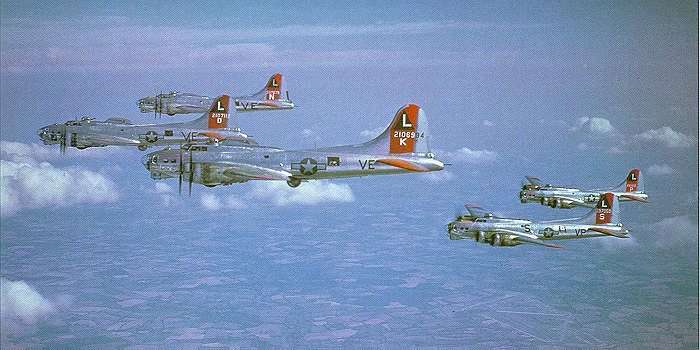The United States Air Force came into being in 1947, two years after the end of World War II. Prior to that, WWII pilots flew in the Army Air Corps. Bill Rodermel was one of those pilots, enlisting fresh out of high school for a 22-month tour to take to the skies and provide support to the troops below.
The Army Air Corps demanded a large amount of training in a small amount of time, teaching corpsmen how to fire the carbines, gain familiarity with the decompression chambers, and learn the ins and outs of all turrets. When it came to target practice, Rodermel was a pro. There was much more to learn than combat, however, as corpsmen were often required to fend for themselves in ways completely unrelated to battle. For instance, peeling potatoes. If peeled too much, the corpsmen had slightly less to eat. While it may sound comical to some, the practice of peeling perfect potatoes was taken very seriously by those in command. One of the more obvious conditions of the Army Air Corps was flight. Rodermel remembers flying throughout all hours of the day in clear conditions before heading to England to practice flying in the fog.
Rodermel was not always certain as to why certain parts of his training happened the way they did. For instance, he recalls having his pistol taken away from him in the English base to make sure that they would not be able to use them if shot from the skies. He also remembers them flying combat missions prior to flying practice missions, the Beloit Daily News reports.
He found himself impressed with the gear they were given. Each man in the Corps was given an “escape kit,” which was basically a map and a parachute along with some other odds and ends. When flying on a B-24 bomber, Rodermel was also given an electric suit along with other superfluous layers of clothing, a defense against the below-zero temperatures reached at such a high altitude.
Rodermel flew twenty-one five-to-ten-hour missions with the Army Air Corps, some of them quite boring by his account. Some were less so. For example, he saw one of his allies meet a fiery death when the plane alongside his own was shot from the air. He would later meet the great niece of this ally and have to explain to her what he saw.
He also remembers dropping napalm on the Germans.
Rodermel was ordered to attend a course on military courtesy after forgetting to salute a superior officer. Despite this seeming rigidity, the Army Air Corps gave each of the corpsmen a shot of Scotch upon debriefing from every mission. As great as this memory is for Rodermel, he is even happier with his life after the Army Air Corps, living with his wife in Beloit, Wisconsin, the proud father of two daughters.
//
